In 1978, activist Wei Jingsheng became China’s most prominent dissident when he posted a signed essay — or “big character poster,” as they are called in China — on a wall in Beijing, arguing eloquently for democracy. He’s been imprisoned twice for his blistering criticism of the Chinese Communist Party, spending some 18 years behind bars before relocating to the United States. Interestingly, he grew up near Xi Jinping, who would become general secretary of the Chinese Communist Party in 2012. Wei’s little brother knew Xi when they were both kids.
In November, I sat down for a wide-ranging interview with Wei in Washington, D.C. We discussed his indoctrination in, and then rejection of, communism as a young person, the future of political dissent in China and Xi’s reading habits, psychology, and greatest vulnerabilities, from the low-level bureaucrats who could stick gum into the party’s gears to the public’s lack of confidence in the regime.
Wei didn’t hedge on the threats to democracy growing around the globe. “If the U.S. continues to choose business interests and tolerate authoritarianism — be it Chinese Communist Party or Saudi Arabia — if they are tolerated for business profits, global democracy will inevitably wane,” he said.
Just a couple of weeks after our interview, mass demonstrations broke out against Xi’s Covid lockdowns following an apartment fire that killed 10 people; many blamed Covid restrictions for delaying the rescue effort. Protestors held up white, wordless sheets of paper as symbols of mourning and defiance of the CCP’s ruthless censorship campaign. Dubbed the “White Paper Revolution,” the protests have had a major impact, contributing to Xi’s decision to dismantle his “Zero Covid” guidelines — perhaps the biggest U-turn on a signature policy since he rose to power a decade ago.
Wei told me the movement has “far exceeded” the Democracy Wall Movement of which he was a leading figure in the late ’70s: “The White Paper Revolution severely undermined Xi Jinping’s confidence. After the 20th Party Congress, Xi Jinping had come to monopolize power at the center and was feeling smug. But the slogan for Xi Jinping to step down, put forward by the White Paper Revolution, is comparable to the question I raised at the Democracy Wall Movement: Do we want democracy or a new dictatorship?”
He added: “Now the impact and influence of the White Paper Revolution has far exceeded that of the Democracy Wall back then. I've added his full sentence here, since it's a major statement.
The following interview is drawn from our November conversation. It has been translated into English and edited for length and clarity.
Matthew Pottinger Lao Wei, It's good to see you again.
Wei Jingsheng Hello, hello.
Pottinger You grew up in Beijing in a leadership compound. You're the son of revolutionaries. Your father was an official. And there was another official whose son grew up as your neighbor in the same compound, and that was Xi Jinping. He's a few years behind you. And I was wondering if you could talk a little bit about your recollections of Xi Jinping when you were growing up just down the street from him.
Wei My dad is not as high level as [his dad]. But although Xi Jinping did not live in the same compound as I did, he was familiar with my little brother. Because they were of the same age, they were good friends. I did not hear a lot about his doings when he was young. When he was young, he seemed rather reckless. He gave a reckless impression. And he was fairly clever, but he did not like reading. This is the impression I got from my little brother. They were relatively close.
Pottinger I know you really love reading. You’ve written about the fact that you read a lot of socialist theory and literature when you were a middle school student, right before the Cultural Revolution started in 1966. You read Marx and Engels and Lenin and Mao and Stalin, and you've written before that as a middle school student, you really were indoctrinated to become what you called a bona fide Maoist fanatic. But you also developed a love for philosophy in those years, and that helped equip you really for the critical skills that you applied later to go from becoming a Maoist to one of the most prominent critics of Maoism and one of the most prominent critics of the Communist Party. How did the 16-year-old Wei Jingsheng, the Maoist fanatic, become Wei Jingsheng, the lifelong dissident and pro-democracy activist?
Wei Yes, yes. You have a good memory. I do love reading. But when I was in school, I didn't like reading books on politics and philosophy. I liked reading novels. I read so much that I was denied membership in the Young Pioneers [a communist youth organization]. I was considered a bad student who didn't listen in class but read novels. I particularly liked the French writer Balzac, the American writer Mark Twain, etc. These are among the writers I liked. Also there was the Russian writer Chekhov. I liked these writers very much.
Later we had a political teacher, who taught political classes. This teacher was a Rightist, loved debating with students, and often preached Marxist theories. We thought what he said wasn't necessarily true, right? So a few students started to read on Marxism and Leninism to debate with him. I borrowed these books so often from the library, the librarian got to know me. I was given access to the book depository. We read very fast and engaged in debates with our teacher.
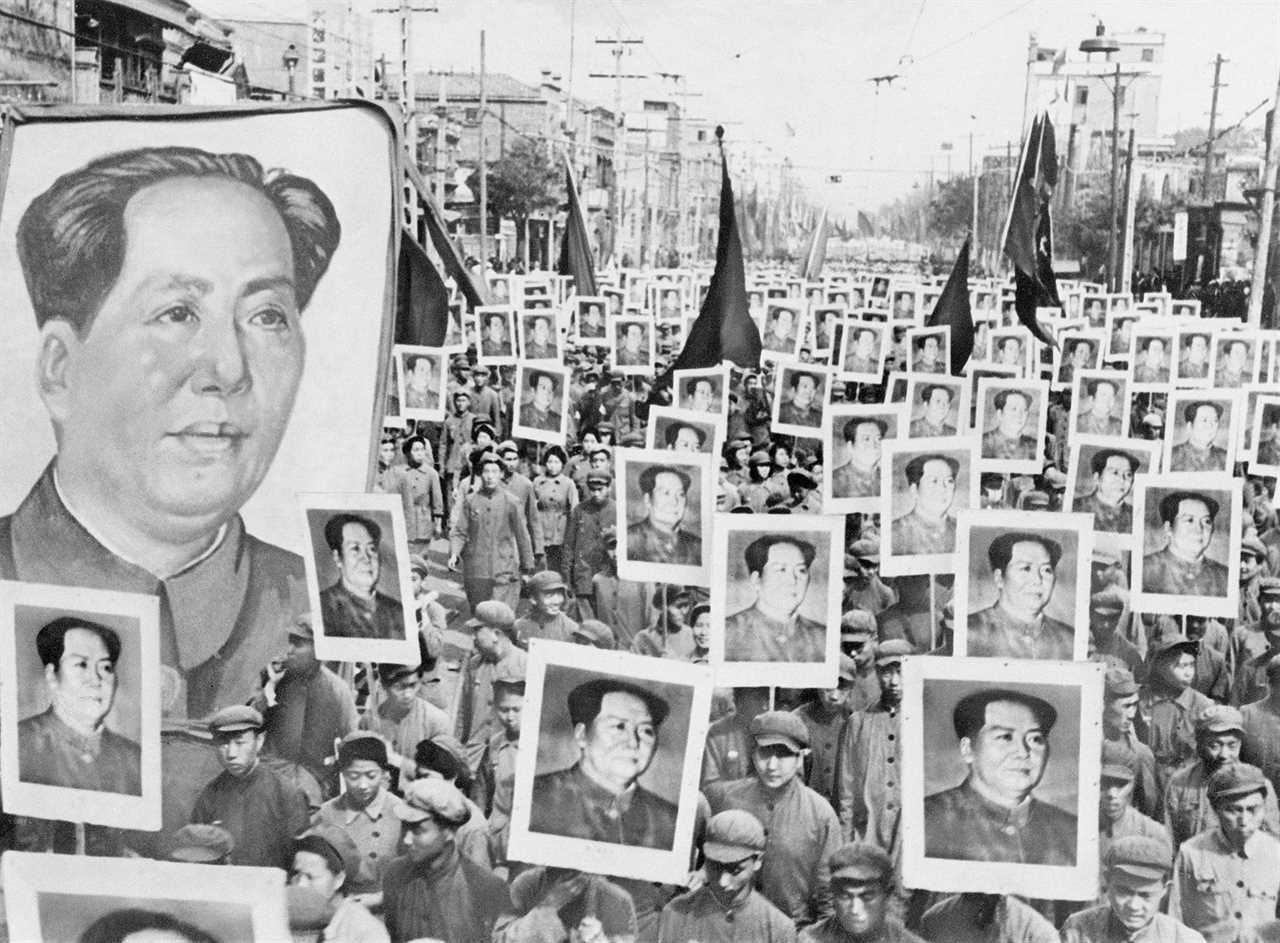
Later the Cultural Revolution started. At the time I still believed in Marxism. I believed Chairman Mao was right, was great, and this and that. Later during the Cultural Revolution, we became the first group of Red Guards. But in just a few months, we were betrayed by Mao Zedong and Jiang Qing. Suddenly it seemed we were no longer revolutionary, but anti-revolutionary. Furthermore, the parents of many of our classmates became anti-revolutionaries.
So after the betrayal, there started a small movement among us youth, a movement to figure out if Chairman Mao was wrong, whether he strayed from the path of Marx and Lenin. So during that time, including when we were sent to the countryside, we read many more books by Marx, the collected works of Marx and Engels, works of Lenin. We read closely and thought about it carefully. That was when I realized that the mistake was not made by Mao Zedong, the mistake was rooted in Marx. You can't use the most hideous, violent means to build a beautiful society. It is self-contradictory.
That was when I realized, that was the moment when I moved away from communism, when I no longer thought communism was good. Of course the numerous deaths of starvation I witnessed in the countryside were also a catalyst for my change of heart.
Pottinger So you mentioned reading all those novels and that had a big impact on you. I know that Xi Jinping read a novel in those days as well. It was a socialist novel from the Soviet Union called How the Steel Was Tempered. And that book, apparently, really had a big impact on him, because when he made his first trip to Russia after he became leader in 2012, he mentioned that book specifically to Vladimir Putin as a book that had a huge impact on him. I wonder why Xi Jinping drew very, very different conclusions about communism and its future than the ones that you did, given that you were neighbors, you were steeped in a lot of the same doctrine.
Wei Actually, we all loved that novel. That novel is very sensational. At the time we were all firm believers of communism. It’s so sensationalist, and we all enjoyed it. It was a common phenomenon among us young people. But after some time, as I just mentioned, I realized that communism is wrong. Then, when I thought about the novel again, I realized that the novel is also wrong. To sacrifice for a wrong ideal, it is a crime.
Speaking of Xi Jinping, perhaps his experiences as a sent-down youth were similar to mine, but he did not join the army. I later became a soldier and a worker. He was never a soldier or a worker. That said, I think his ideas in the ’80s or ’90s were probably not that different from ours. Young people of my generation took similar paths, and shared many similar ideas. Also, he probably also participated in the small movement I just mentioned, the movement to re-study Marxism and Leninism, and he did not necessarily really believe in the Communist Party. But people can change and people do change. One's circumstances change. For example, I thought I should devote myself to democracy and freedom in China, while he chose to become an official. And being an official, his interests as an official determine his increasing support for the Communist Party, to the point of becoming the Communist Party. He also wants to change the Communist Party for the worse, to become more repulsive than the old Communist Party, because his interests require him to do so. I have embarked on a completely different path.
It's likely our differences can be mostly attributed to our different positions. There is a Chinese saying, “Where one sits decides what one thinks.” One's position can significantly influence one's thinking. On the contrary, there are many young people who shared Xi Jinping's experiences. They also became officials, bureaucrats big and small. Being in the positions they are in, they turn toward the Communist Party, because that's where their interests lie. But now when they are being purged, being attacked, they may start to have second thoughts. The experiences of re-reading Marxism when they were young, the tendency to reject Marxism, might once again have its influence on them.
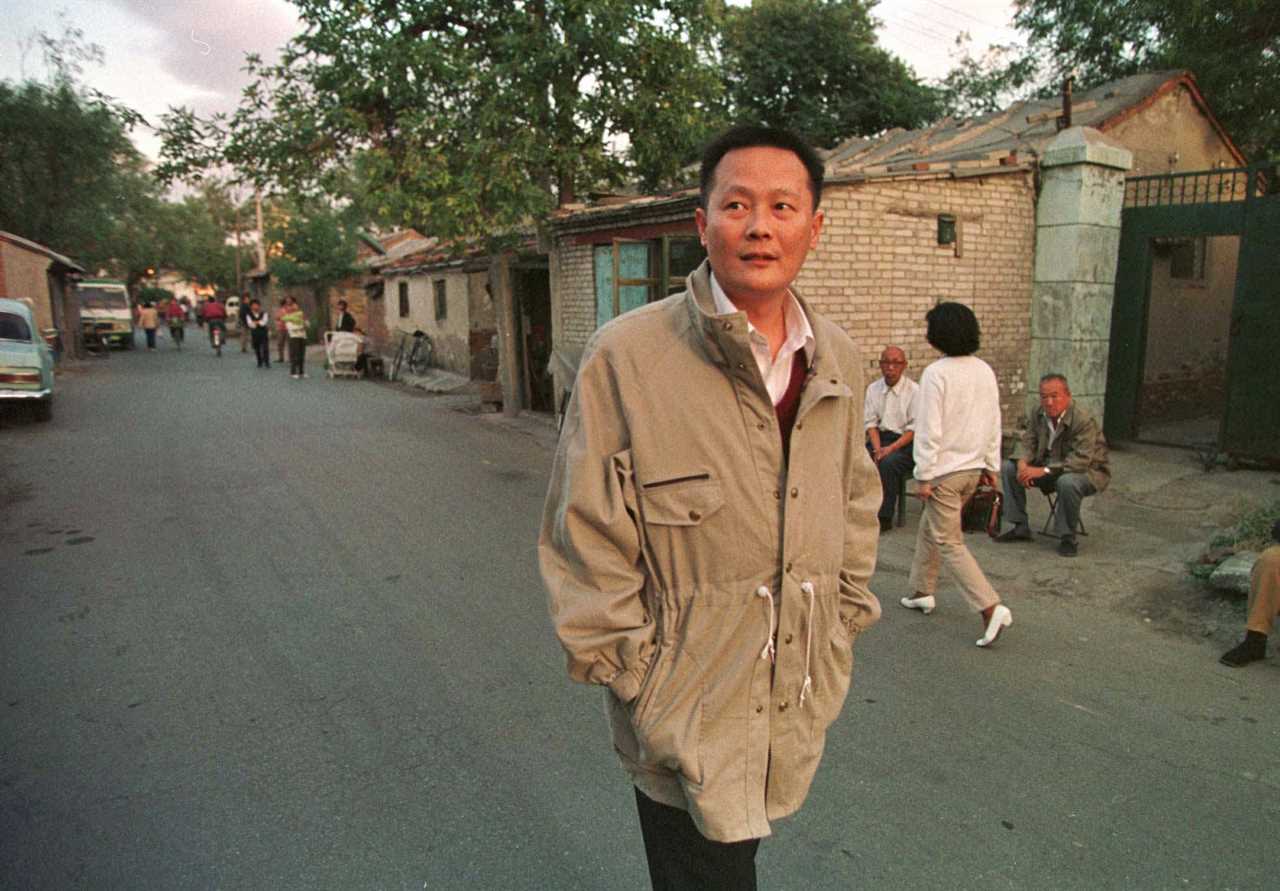
Pottinger Can you expound on Xi Jinping Thought?
Wei Xi Jinping doesn't have much thought. Honestly, this is my little brother's impression of him. I did not know him well. There was Liu He living upstairs from us, he is the vice premier now. Liu He lived upstairs and he was familiar [with Xi]. Those two, my little brother and Liu He, they knew Xi Jinping relatively well. So according to their description, Xi Jinping didn't seem to like reading. Later he brags about reading this and that, but I don't think so. Those are lies to boost his image.
I think once he became the leader of the Communist Party, he has come to recognize many of Mao Zedong's actions were probably more effective than those of Deng Xiaoping and Jiang Zemin. Deng Xiaoping and Jiang Zemin's reforms brought economic growth, but what about ideology? According to them, people became confused and no longer trusted the Communist Party and Chairman Mao as much. Xi probably considered it a bad state of affairs. He wants to reestablish the kind of authority Mao Zedong enjoyed. Everyone obeys one person, everyone follows the baton. His current position is probably why he prefers it that way. His aversion to reading and thinking probably has something to do with it, too.
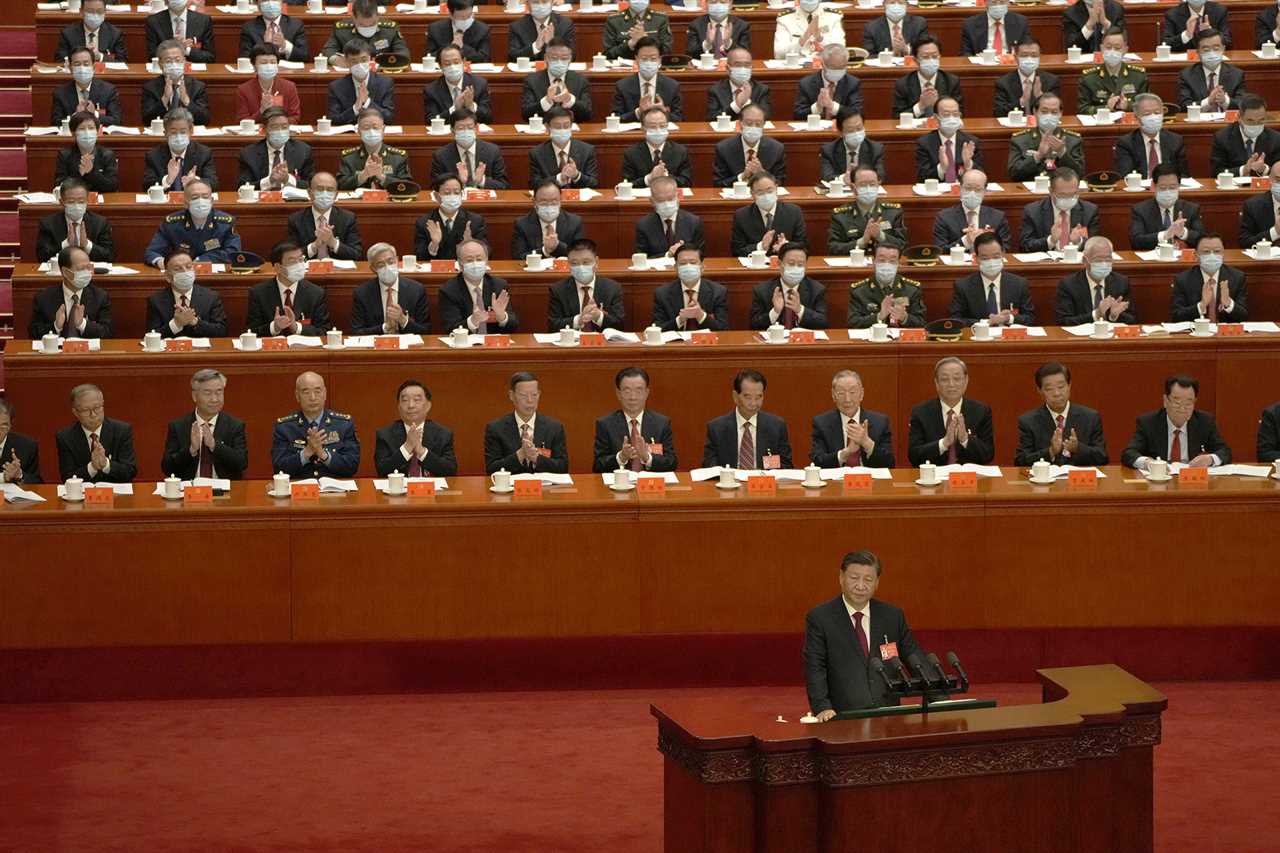
Pottinger I have to say, I've read a lot of Xi Jinping speeches. I've read the speeches that were not made public immediately, ones that were directed at the Communist Party Central Committee, as opposed to the ones that he's giving when he's talking to a crowd at Davos, for example, when he's speaking to a foreign crowd. When you look at the internal-facing speeches, I have to say, I could still come away with the impression that he is a committed Leninist, that he is a communist, that he's not faking it. Even if you're right that he's not fully immersed in the broadest sense into Marxist theory, he certainly has shown an aptitude for grasping the essence of a Leninist system of government, the essence of Stalinism, being able to purge his enemies and to climb steadily, steadily higher up that slippery pole of power. So I wonder if, you know, whether we would be underestimating him if we were to say that there really isn't an ideology there?
Wei Speaking of his stuff, first, once you become a leader, it no longer matters if you don't have an ideology. Your assistants will write one for you. They will invent some for you. Why does Wang Huning always come up with new sayings, new thoughts for them? That is the job for people like him, right?
On the other hand, Xi Jinping's family has had its share of misfortunes. His father was persecuted at the end of the 1950s, badly persecuted. Given his family experience, he probably has heard a lot about, or learned a lot from the cutthroat political struggles within the party. So he thinks Stalin's methods — Mao Zedong learned a lot from Stalin; not so much Marx and Lenin, but Stalin. Stalin's methods of purge and oppression appeal to him more. Although his family, including himself, suffered these persecutions, perhaps, comparable to the well-known Stockholm Syndrome, their suffering leads them to believe these methods are correct, are effective. Now he’s picked it up. He started to use these methods of persecution he suffered through on others. This is a natural progression.
Yet under the same persecution, members of different families might choose different directions. My family had similar experiences. My father was persecuted too. He was persecuted in the early 1950s, before his family. But our family education, at least what my mother taught us, was not to learn from the bad, but from the good. Although both my parents were Marxists, they aspired to the good bits, the relatively positive bits in Marxism. Like lofty ideals, compassion for the people, sacrificing for the society, etc. These are the kinds of things we were mostly exposed to.
Maybe, I do not know exactly, but judging from his actions now, his family education might have mainly consisted of what persecution his family suffered during interparty struggles, why they were persecuted, and how they were persecuted. He might have been mainly exposed to such things. And being in power might have reawakened these memories.
He has been slowly practicing these methods during his long tenure as an official. Chinese call it the “Thick Black Theory.” It's about how to deal with others, how to plot against others and how to bully others. He probably grows increasingly skilled at this with all the practice. So the political trickery he utilizes, the kind used by Stalin and Mao Zedong to oppress and persecute people, is perhaps one kind of [ideology], the kind he adopts.
Pottinger Before the 20th party congress that occurred last month, you had said in some of your interviews and tweets that it was possible that Xi Jinping might not get a third term. Here we are, we’ve now seen the outcome of that party congress. Not only did he get a third term, he hasn’t identified a successor, which implies that he’s going for a fourth term and maybe more. He has completely eliminated non-loyalists from the highest ranks of the Communist Party. Did you underestimate him, and what do you think this portends?
Wei I indeed underestimated him. I did not expect him to employ such rogue methods to instigate a small coup d'état — a palace coup. He reneged on all his promises to the other members of the leadership. In addition to the third term, he promoted his own people to surround himself. That he would use such despicable tricks to remain in power, this is something I did not expect. Judging from the impression he gave me when he was little, he should not have been such a wicked person. But like we just discussed, his family education, and his decades of experiences as an official, might have led him down the path of evil and increasingly to take after Stalin and Mao Zedong, even exceeding those two in his villainy. He persecutes others with such craft. But now, although he has achieved his goal, the outcome is very unstable, and [he] cannot win the acceptance of the public. Without true acceptance, he has little legitimacy. With hardly any legitimacy, he is going to have some very hard times ahead. The biggest conundrum for him is how to control this Communist Party.
Pottinger What are Xi Jinping’s vulnerabilities now? He looks all powerful, or as close to being all powerful as any Chinese paramount leader has been. What are his vulnerabilities, and what are the vulnerabilities of the Chinese Communist Party that maybe we don’t see very easily?
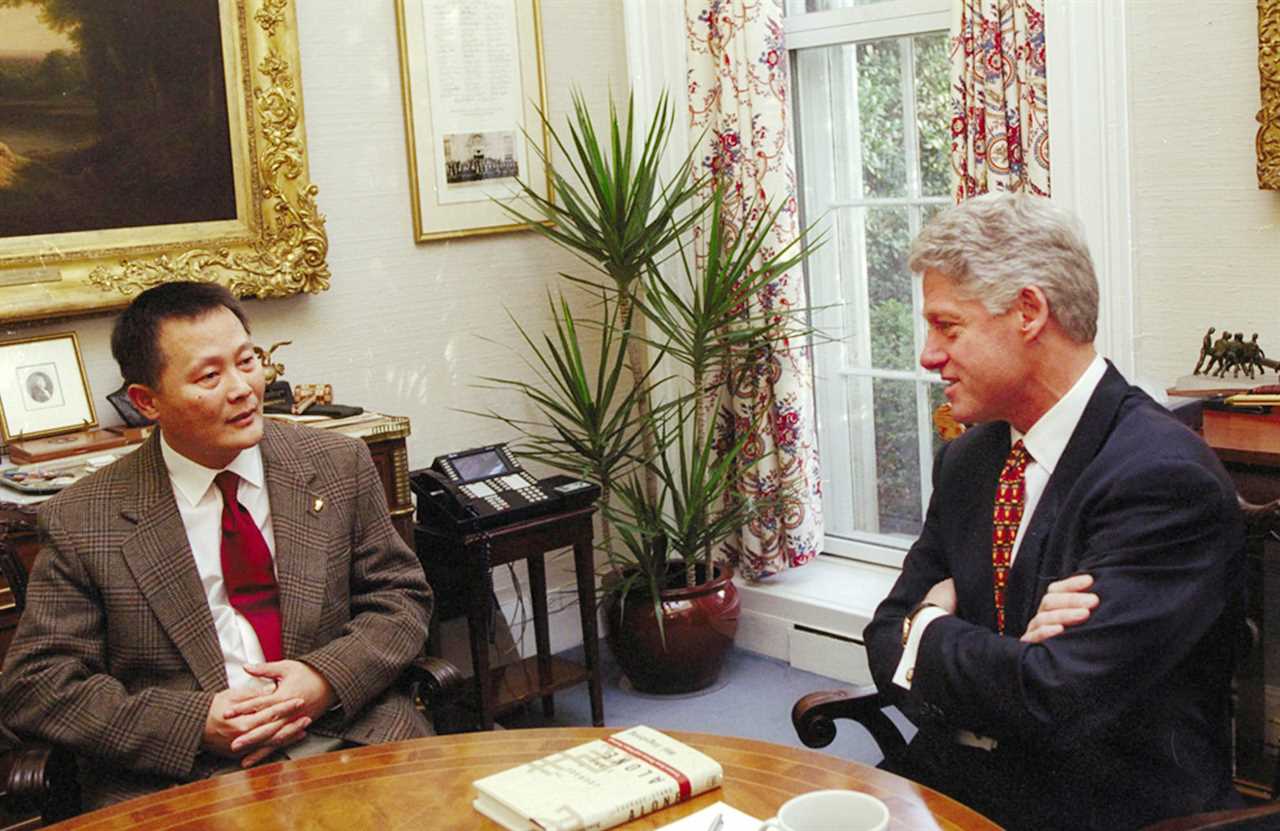
Wei On the surface, to the foreigners, Xi Jinping appears to be all powerful, with tremendous authority. To Americans, a president, having assumed the presidency, has corresponding powers. Others must put their trust in the president and obey orders issued by the president.
It is different in China. Occupying the office without credibility will not lead to obedience. Chinese officials are very skilled at disobeying without getting caught. There is a Chinese saying, “There are policies from the top, and there are countermeasures at the bottom.” They have various ways to handle it. When others do not have faith in you, when you have no credibility and receive no acceptance, you are in big trouble. Your orders might not be carried out at all. Others might have ways to have your orders vanish into thin air.
Under such circumstances, lacking credibility, lacking confidence from the people or authority among the people is Xi Jinping's biggest vulnerability. The Communist Party shares the same biggest vulnerability as Xi Jinping. The Communist Party has no credibility either. It agrees with you, makes promises to you, but it will not deliver. When I met with [President Bill] Clinton back then, we talked about this. I told Clinton that he should not offer China favorable conditions first. You have to hold on to the favors until it delivers its promises. You can only hand over the money once you receive the goods. If you pay up front, you might never receive the goods. This is the biggest characteristic of the Communist Party's duplicity. Of course, it can fool Americans, Europeans, people around the world. It's easy to fool people once, but people cannot be fooled forever, right? They cannot be fooled forever. Then, once people lose their trust in you, they may not believe you even when you are telling the truth. Then you are in a bind.
Pottinger Some people can be fooled always, but not all people.
Wei Indeed.
Pottinger You spent 18 years in jail. And the first time you went to jail, it was because of your role in 1978, in what became known as the Democracy Wall Movement. You pasted a manifesto onto a public wall, and you were calling for what you called the Fifth Modernization, which hadn't been included in Deng Xiaoping's description of things that China needed to modernize, like science and technology and industry and national defense. You called for a fifth modernization, which was democracy. Looking back and looking at this moment right now, do you think that China felt closer to democracy in 1978, or does it feel closer to democracy now, in late 2022?
Wei At that time, we were very close. Bao Tong agreed with me too. According to him, the Communist Party at the time did not know what direction to take. Mao Zedong's way, Stalin's way — everyone knew that would not work. Those paths lead to the ruin of the nation. But then what instead?
At that time, Bao Tong opined, the Communist Party could have chosen the path of democracy. Because these Communist cadres, big or small, climbed up to their position under the banner of democracy when they were young. They, including Mao Zedong, never abandoned the banner of democracy, even though what was really implemented was dictatorship. But the party called it "big democracy,” which allows the people to speak their minds, post "big character posters,” etc., etc. The party could have chosen the path of democracy at the time. There was a real chance.
Unfortunately Deng Xiaoping chose otherwise. He chose the traditional Chinese road, a road where the market economy is headed by authoritarian politics. He knew a market economy is superior to a planned economy. There is no doubt about it. But the debate at the time, the biggest argument within the Communist Party, was whether we should adopt Western-style parliamentary democracy, or continue on the path of one-party dictatorship. There were many veteran Communist members with life-long faith in communism who believed that the one-party rule must be upheld. At the time Deng Xiaoping proposed the “four upholds,” with the cardinal principle being “uphold the leadership of the party.” That was how we missed the opportunity at the time. In 1989, when the people rose to demand democracy, although Zhao Ziyang was not necessarily pro-democracy, but at least he did not want to suppress the people, he, perhaps, advocated for compromises. That was another opportunity which we also missed.
Now, under Xi Jinping's high-handed governance, there is a new opportunity. When authoritarian politics threaten not only the masses, the dissidents, but also Communist officials themselves, people might start considering, is there a different path available? At least officials in the U.S. don't necessarily end up in prison over just any mistakes. Meanwhile, even without making mistakes, Communist Party officials can be sent to prison simply upon Xi's displeasure. To the party officials, the American system at least provides more personal security. Given the circumstances, maybe more and more Chinese Communist Party officials would hope to choose a path to democracy. This is not my conjecture, but a conclusion based on the information I have received. Many Communist officials are in contact with me through friends. They hope we can do more outside China to bring about changes inside China. Of course we are working hard, but those inside [China] are unaware of the challenges we are faced with, while we clearly know the difficulties they are living with in China.
Although the opportunity is present, the outcome depends on what choice the international community makes. If the U.S. continues to choose business interests and tolerate authoritarianism, be it Chinese Communist Party or Saudi Arabia, if they are tolerated for business profits, global democracy will inevitably wane. The role of models is increasingly clear to all. If you are not serious about democracy, why would we fight tooth and nail for it? So I think the U.S., as a beacon of light for democracy, plays a paramount role. Examples of other models of democracy, like democratic European nations, Japan and Taiwan are also important. If these models don't live up to their reputation, I think democracy in China will also suffer.
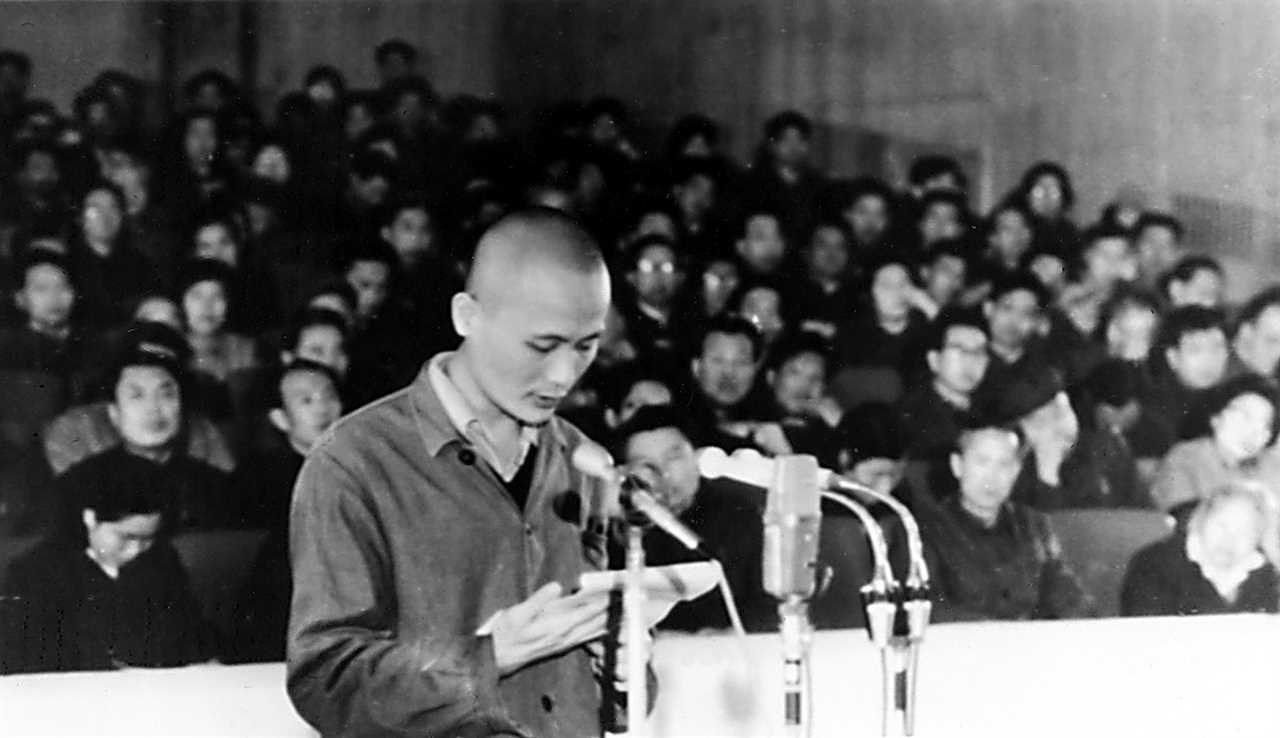
Pottinger Under Xi Jinping, Beijing has built a surveillance system that is probably more advanced than anything we have seen before. The exiled Central Party School official Cai Xia has described it as exquisite totalitarianism. Is there a path toward a moment, like the moment beginning with the Democracy Wall Movement, and the 1980s you just described? Is there a way for that kind of moment to return to China in light of the fact that you have pervasive, deeply intrusive surveillance through technology provided by Silicon Valley and funded by Wall Street?
Wei What Cai Xia said makes a certain kind of sense, but she is rather pessimistic. The high-tech surveillance Xi Jinping employs to control society does lead to the belief that it is increasingly difficult, even impossible, to overthrow the regime using traditional tactics. But the problem is that high tech is not only accessible to Xi Jinping. The masses can master it, too. Resisters can also make use of these high tech means. Both sides enjoy equal opportunities. The key is whether there is enough confidence to take actions to overthrow the Communist Party. But of course Cai Xia and some other friends don't always share the same opinions. They are anti-Xi, but not anti-communism. They oppose Xi Jinping, but not the Communist Party. They think such a stance can be accepted by more people. But I believe we not only need to oppose Xi Jinping, but also the Communist Party. If we could get rid of Xi Jinping, the Communist Party won't last long either, the end will be near. At least, when it comes to that, the Communist Party might reform itself, thus creating an opportunity for democracy. I am still relatively optimistic. I don't believe Xi Jinping could control everything. Especially when no one trusts you and you still need people to manage the surveillance system, would they be loyal to you? So, I think there are still opportunities.
Pottinger You reminded me that in 1999, when the United States was debating whether or not to extend permanent normal trade relations to China, paving the way for China to come into the World Trade Organization, you gave a warning at the time to members of Congress. You said that China's closed tyranny under Mao Zedong was terrible for the Chinese people. But what you termed the open tyranny that had been ushered in by Deng Xiaoping would be very, very dangerous for democracies everywhere. That was in 1999. I have to say, it looks like it was a fairly prescient warning in hindsight. Could you talk a little bit about that, the threat to democracy today as a result of Beijing's open tyranny, and whether Xi Jinping is, perhaps, inadvertently threatening to undermine what you viewed as a very problematic form of tyranny externally?
Wei The past 20-some years have proved that an open tyranny is even better at deceiving. During these 20-some years, major Western businesses have invested in China and painted a pretty picture of China for the outside world. A lot of the American people have come to believe it, thus letting down their guard against China. A lot of academics are also advocating for China. China’s infiltration of the U.S. has led to problems in the health of the American system. Now Americans are starting to realize how serious the infiltration is. It is close to taking control of our regime, our thinking. This situation, this is exactly the result of Deng Xiaoping’s open tyranny.
On the contrary, as Xi Jinping closes up the country, more and more people might be able to see the true face of the authoritarian regime, the danger it poses to the U.S. and its neighboring countries. Also, without the support of the people, it might grow increasingly weak, and it’s paradoxically not as dangerous as that of the open society under Deng Xiaoping. Therefore right now is the best opportunity for the people to confront the Communist Party.
Pottinger I couldn’t help but to notice that Xi Jinping, at the end of this party congress, he talked about stormy seas ahead. And I couldn’t help but to think about Taiwan in that context. What do you think Beijing’s and Xi Jinping’s intentions are with respect to Taiwan in his third five-year term?
Wei According to the calculations of Xi Jinping and his clique, now perhaps presents the best opportunity to attack Taiwan. Because the attention of the U.S. and other Western countries are focusing on Ukraine, where the war is unlikely to end any time soon, and where the U.S. would invest more aid. If he launches a war against Taiwan now, he needs to consider whether the U.S. and Japan would send aid to Taiwan.
Chinese leaders have been talking about “liberating Taiwan” for years, and why did they never make the move? The U.S. is the decisive factor in the decision. They cannot defeat the U.S. Any move against Taiwan might invite fierce retribution from the U.S. But now, the United States’ attention is elsewhere. This presents an important window of opportunity to Xi Jinping. Therefore he has been desperately mobilizing for war.
Only a few days ago, when he visited the joint operations command center of the Central Military Commission, he told the army to focus on preparation for war and to be victorious. He sees a great opportunity. On the other hand, on the domestic front, we have just talked about how much he is hated and loathed. He has no credibility — not among the people or among the bureaucrats. How would you extricate yourself from this conundrum? Those in power have always resorted to a simple method — start a foreign war, which might immediately alleviate internal conflicts. Stupid as Xi Jinping is, he understands this. If he doesn’t, others will be sure to remind him. He would start a war with Taiwan if only to stabilize his regime. Therefore we must stay vigilant, we cannot drop our guard.
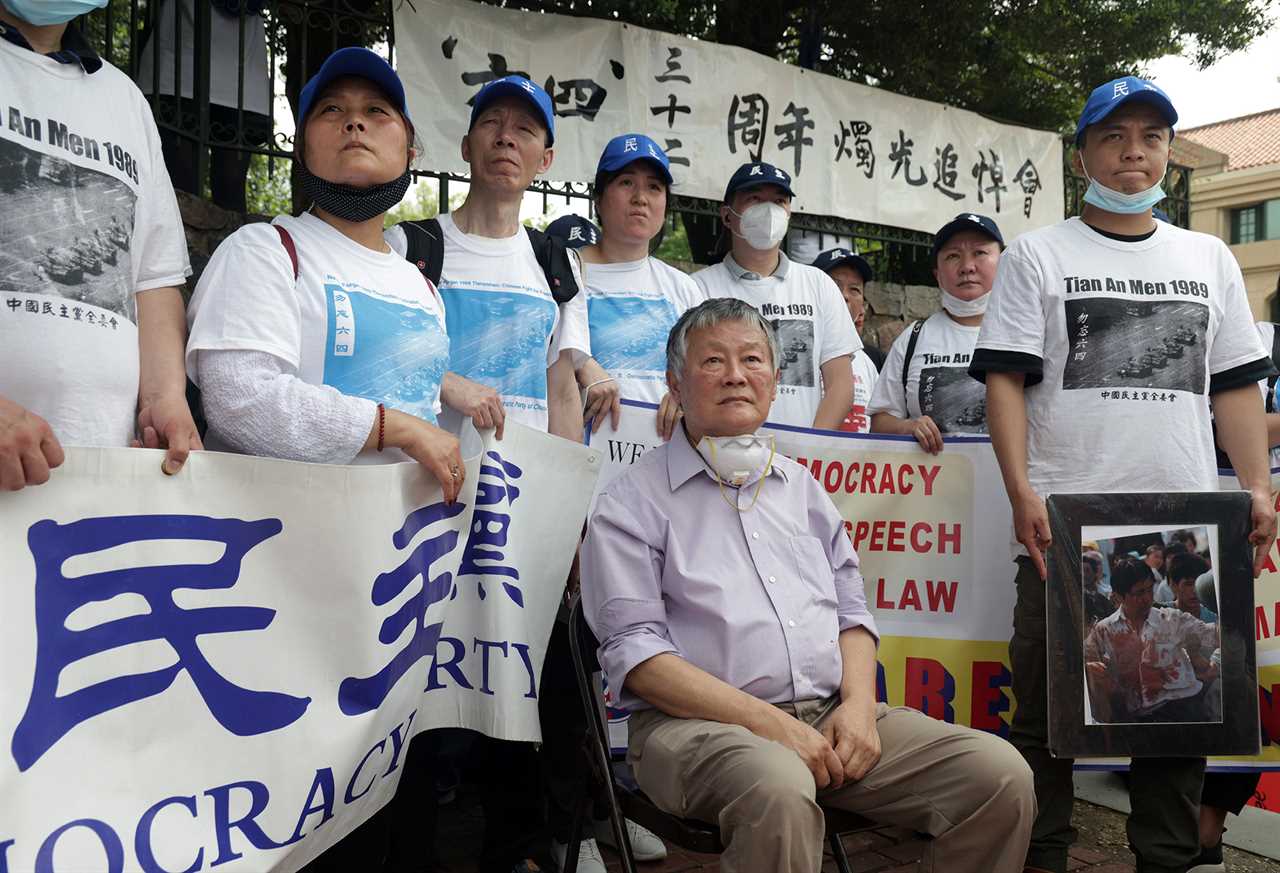
Pottinger Maybe we could close with some of your reflections on what is the role of a Chinese dissident today — a Chinese dissident in exile, like yourself, in particular?
Wei My thinking was formed even before I left China. Why did I agree to be sent out of China, to the U.S.? Firstly, I believe the overseas democracy movement has paramount importance. Mobilizing international pressure gives domestic dissidents some room to maneuver. The Communist Party fears global public opinion. They always have, right from the beginning. The party talks about how it fears nothing on the international stage, but it is terrified. This is a “merit” of the Communist Party — it knows it cannot alienate the whole world. So an important job for us overseas is to mobilize the international community to put pressure on the Communist Party.
Another important job is to facilitate the flow of information to the domestic audience, such as what democracy in America looks like, and why it is good. We utilize all channels. There are more and more channels nowadays, including social media. I have hundreds of thousands followers on my Twitter, and half of them are using Twitter through a VPN. They send their greetings so I know they come from within China. This is how we communicate information and discuss problems with people inside China, how we explain issues that they find perplexing. I think this is also very important to the future democratization. Because democracy in China can only be established by the people in China. It cannot depend on people overseas. The majority of those overseas are never able to return. The more the people in China know, the smoother the process of establishing democracy will be. So, this is an important part of our work. These two are our main tasks.
Pottinger Wei, I want to thank you. Thank you very much.
Wei Thank you very much.
Renee Klahr and JC Whittington produced this video.
----------------------------------------
By: Matt Pottinger
Title: ‘Lacking Credibility, Lacking Confidence From the People … Is Xi Xinping’s Greatest Vulnerability’
Sourced From: www.politico.com/news/magazine/2022/12/20/china-wei-jingsheng-xi-covid-00014844
Published Date: Tue, 20 Dec 2022 04:30:00 EST






